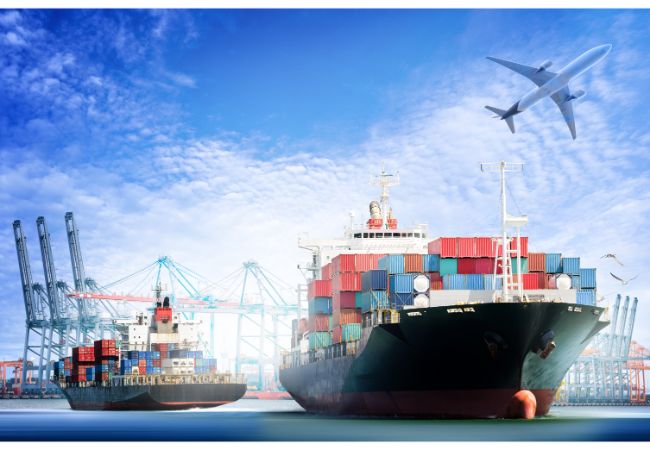The latest Industry News
USED ENGINE COLLECTION GUIDE
If you send car parts such as engines on a regular basis, there are some things you must know in order to avoid a myriad of problems such as risk hazards presented by leaking engines, additional shipping charges and delayed delivery.
We've put this short guide on packing and shipping engines to help you in this process and make sure your shipment arrives on time and without any issues.
Of course, if you have any questions, as always we're here to help.
Used engines are a particular risk in a pallet network. If the fluids are not drained, they can leak, contaminating other freight, trailer/truck beds and create a slip hazard. If they are not securely fastened to the pallet, they detach and damage other freight, leak oil and become a contact hazard by falling from vehicles. Recent incidents, one of which could have been very serious, have lead to the introduction of these guidelines.
To ensure the safety of employees, the following control measures should be taken.
1. ALL fluids MUST be drained. The driver must have access to the dipstick and will check for oil. There should be no oil showing on the dipstick. If oil is present, the pallet cannot be collected.
2. The pallet should have rags, or oil absorbent mats on top, before the engine is placed on the pallet. Any small drips should be contained, a small amount of oil goes a long way.
3. If the engine has a sump and is therefore not flat, the sump should be in car tyre to help stabilize it.
4. The engine should ideally be fastened to the pallet by at least a ratchet strap. Professional style plastic or steel banding with at least 2 bands should be acceptable. All straps and bands should be protected where they touch the engine to prevent chafing/sliding.
Fastening to the pallet with ROPE, SHRINK WRAP ONLY, SHRINK WRAP THAT IS NOT SEETHROUGH EG BLACK, TAPE ONLY, STRAPS THAT ARE NOT RATCHET, OR PLASTIC /METAL BANDS THAT HAVE NOT BEEN AFFIXED BY A MACHINE OR ARE NOT TIGHT, are not acceptable methods for carriage and collection will be refused.
5. Providing the banding/strap is in place, shrink wrap can be used, as long as there is a hole so the driver can check the dipstick. The strap/band should be visible. If the driver cannot check the oil, the collection can be refused.
The driver can refuse the collection if he has doubts regarding the security of the engine on the pallet, or if there are any fluids left in the engine. Charges may still apply, contact depot.
Paragraph 223 of the Health and Safety Executive, Workplace Transport Safety Guide, states that everyone in the supply chain should co-operate to achieve safety, including the sender, so we all have a duty to ensure the consignment is secure and safe.
Overleaf are good and bad examples of palletised engines for guidance. Should always be drained of fluids.
Tied with rope, not acceptable.
GOOD EXAMPLES:
Strapped tightly to the pallet. Ideally should have rags/mats underneath, but it is drained and is a "˜clean' engine, it is not wet with oil.
Drained, clean engine, on tyre, good pallet machine banded.
Plastic band strapped engine. 4 plastic straps done by machine and tight. Engine sits flat on pallet, no tyre needed. Ideally should be sat on rags/mat, but not needed as engine is drained, and is very clean. Straps could benefit from protection, but if bands touch smooth areas then are ok.
These are various examples of how engines can be presented. Use your experience. If you don't think the freight is safe, then it's probably not safe. If you don't think it would travel through the network safely, don't load it, call the office for advice. If you wouldn't want it to come through on the trunk for you to deliver, then the chances are that other drivers wouldn't want it either - call the office.
If you have regular senders of engines, you will know who they are. They will be aware of the guidelines and should be packaging within the guidelines, but if you have any doubts, call the office.
If you send car parts such as engines on a regular basis, there are some things you must know in order to avoid a myriad of problems such as risk hazards presented by leaking engines, additional shipping charges and delayed delivery.
We've put this short guide on packing and shipping engines to help you in this process and make sure your shipment arrives on time and without any issues.
Of course, if you have any questions, as always we're here to help.
Used engines are a particular risk in a pallet network. If the fluids are not drained, they can leak, contaminating other freight, trailer/truck beds and create a slip hazard. If they are not securely fastened to the pallet, they detach and damage other freight, leak oil and become a contact hazard by falling from vehicles. Recent incidents, one of which could have been very serious, have lead to the introduction of these guidelines.
To ensure the safety of employees, the following control measures should be taken.
1. ALL fluids MUST be drained. The driver must have access to the dipstick and will check for oil. There should be no oil showing on the dipstick. If oil is present, the pallet cannot be collected.
2. The pallet should have rags, or oil absorbent mats on top, before the engine is placed on the pallet. Any small drips should be contained, a small amount of oil goes a long way.
3. If the engine has a sump and is therefore not flat, the sump should be in car tyre to help stabilize it.
4. The engine should ideally be fastened to the pallet by at least a ratchet strap. Professional style plastic or steel banding with at least 2 bands should be acceptable. All straps and bands should be protected where they touch the engine to prevent chafing/sliding.
Fastening to the pallet with ROPE, SHRINK WRAP ONLY, SHRINK WRAP THAT IS NOT SEETHROUGH EG BLACK, TAPE ONLY, STRAPS THAT ARE NOT RATCHET, OR PLASTIC /METAL BANDS THAT HAVE NOT BEEN AFFIXED BY A MACHINE OR ARE NOT TIGHT, are not acceptable methods for carriage and collection will be refused.
5. Providing the banding/strap is in place, shrink wrap can be used, as long as there is a hole so the driver can check the dipstick. The strap/band should be visible. If the driver cannot check the oil, the collection can be refused.
The driver can refuse the collection if he has doubts regarding the security of the engine on the pallet, or if there are any fluids left in the engine. Charges may still apply, contact depot.
Paragraph 223 of the Health and Safety Executive, Workplace Transport Safety Guide, states that everyone in the supply chain should co-operate to achieve safety, including the sender, so we all have a duty to ensure the consignment is secure and safe.
Overleaf are good and bad examples of palletised engines for guidance. Should always be drained of fluids.
Tied with rope, not acceptable.
GOOD EXAMPLES:
Strapped tightly to the pallet. Ideally should have rags/mats underneath, but it is drained and is a "˜clean' engine, it is not wet with oil.
Drained, clean engine, on tyre, good pallet machine banded.
Plastic band strapped engine. 4 plastic straps done by machine and tight. Engine sits flat on pallet, no tyre needed. Ideally should be sat on rags/mat, but not needed as engine is drained, and is very clean. Straps could benefit from protection, but if bands touch smooth areas then are ok.
These are various examples of how engines can be presented. Use your experience. If you don't think the freight is safe, then it's probably not safe. If you don't think it would travel through the network safely, don't load it, call the office for advice. If you wouldn't want it to come through on the trunk for you to deliver, then the chances are that other drivers wouldn't want it either - call the office.
If you have regular senders of engines, you will know who they are. They will be aware of the guidelines and should be packaging within the guidelines, but if you have any doubts, call the office.
If you have any questions regarding our services,
tracking your parcel or advice, we're here


